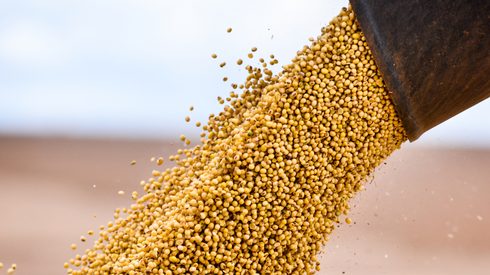Palm oil stock levels in Malaysia at the end of September rose by 9.6% from August to 2.31 million tonnes, data from the Malaysian Palm Oil Board (MPOB) showed Tuesday, October 10, coming in lower than earlier industry estimates of a 12-14% increase.
The rise in stocks, albeit lower than expected, has been anticipated by the market and comes on the back of higher production and a dip in exports, while a surge in local consumption also ate into stocks at the end of September.
Malaysia’s crude palm oil (CPO) production in September rose by 4.3% to 1.83 million tonnes – again lower than earlier expectations of around 6% more than in August in polls by newswires Reuters and Bloomberg, with the Malaysian Palm Oil Association pegging it at 1.87 million tonnes while brokerage UOB Kay Hian estimated output at 5-9% higher.
The increase in output comes amid Malaysia’s seasonal peak production season, with the state of Sabah registering the highest monthly production growth at 8.3% higher to 418,052 tonnes.
Meanwhile, palm oil exports slipped by 2.1% to 1.196 million tonnes, contrary to market estimates of an increase of around 8%, while cargo surveyor figures had pegged exports at 3.6-8.1% more than August.
The bigger surprise has come from the sharp jump in local disappearance, which is estimated at around 479,786 tonnes or an 80% increase from August.
While MPOB does not release local consumption data, one possible reason offered for the rise in domestic consumption could be due to higher cooking oil purchases, following talks that the Malaysian government will discontinue the subsidy for the 1 kg polybag cooking oil in the upcoming budget due to be tabled October 13.
The subsidy, which prices the 1 kg polybag at RM2.50 versus actual prices which could be around 3-4 times higher, is planned to be replaced by a targeted subsidy based on income group and potentially sparked some panic buying from consumers in September.
Imports
Lastly, imports for September were reported at 49,054 tonnes, 55.7% lower compared with August.
Looking ahead, the lower-than-expected end-month stock build may provide some support to bullish sentiment in the market, alongside export indications for October 1-10, which cargo surveyors Intertek Testing Services (ITS) and Amspec Agri Malaysia have been pegged to increase by 12.5% and 29.6% from September to 394,570 tonnes and 395,890 tonnes respectively.
The most active CPO futures contract for December delivery on Bursa Malaysia was trading lower during the morning trade session, closing at MYR3,567 per tonne ($754 per tonne) at midday ahead of the release of MPOB data, dragged down by the drop in weaker overnight soybean oil futures on CME.
View our veg oil prices
Note: Prior to the release of the September data, MPOB had adjusted August exports of processed palm oil to 951,803 tonnes from 951,768 tonnes, CPO stocks to 1,200,077 tonnes from 1,200,612 tonnes, and processed palm oil stocks to 910,903 tonnes from 924,351 tonnes, resulting in estimated local disappearance for August at 265,164 tonnes instead of 251,473 tonnes reported earlier.



